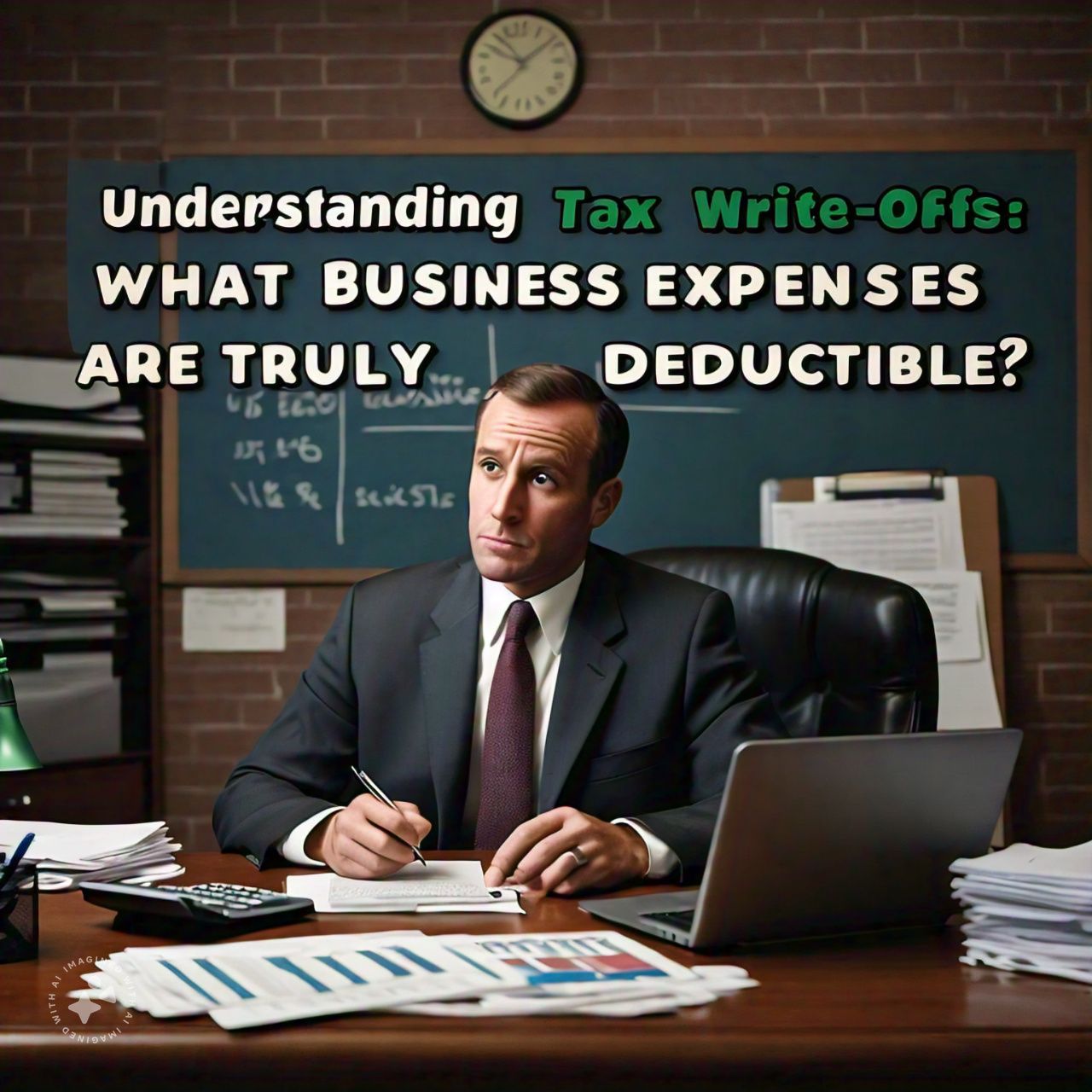Navigating the labyrinthine world of tax write-offs can be daunting, especially for freelancers and business owners striving to maximize their tax savings. Misunderstanding what expenses are truly deductible can lead to missed opportunities for savings or, worse, penalties. This comprehensive guide aims to clarify what qualifies as a deductible business expense and how to effectively manage your tax obligations.
The Basics of Tax Write-Offs
Tax write-offs, also known as tax deductions, are specific expenses that the IRS allows you to subtract from your total income, thereby reducing your taxable income. For business owners and freelancers, understanding these deductions is crucial for minimizing tax liability and maximizing savings.
Common Deductible Business Expenses
The IRS has a broad list of expenses that can be deducted, but not all of them apply universally. Here are some of the most common deductible business expenses:
Office Supplies
Office supplies such as paper, pens, and printer ink are generally deductible. Even larger items like computers and office furniture can be written off, although these may need to be depreciated over several years.
Travel Expenses
Travel expenses related to business activities—such as airfare, hotel stays, and meals—are deductible. However, it’s essential to keep detailed records, including receipts and the purpose of the trip, to substantiate these expenses.
Professional Services
Fees paid to accountants, lawyers, and consultants for services related to your business are deductible. This includes costs associated with tax preparation and filing, which can be particularly beneficial for freelancers and small business owners who often face complex tax situations.
Specific Concerns for Freelancers
Freelancers often grapple with unique challenges when it comes to tax write-offs. Here are some specific concerns and solutions:
Home Office Deduction
The home office deduction is one of the most misunderstood and underutilized deductions. To qualify, a portion of your home must be used exclusively and regularly for business purposes. This can include a dedicated room or a clearly defined space within a room.
Estimated Tax Payments
Freelancers are generally required to make estimated tax payments quarterly. Failure to do so can result in penalties and interest charges. Keeping track of these payments and ensuring they are made on time is crucial for avoiding unnecessary financial strain.
Challenges for Business Owners
Business owners face their own set of challenges when it comes to maximizing tax deductions:
Employee Expenses
Salaries, wages, and benefits paid to employees are deductible. However, it’s essential to properly categorize and document these expenses to avoid issues during an audit.
S Corp Late Filing Penalty
For those operating as an S Corporation, timely filing is crucial. The IRS imposes a late filing penalty for S Corps that fail to file their tax returns on time. This penalty can be significant, so it’s essential to stay on top of deadlines and ensure all required documentation is submitted promptly.
Maximizing Tax Savings
To truly maximize your tax savings, consider the following strategies:
Keep Detailed Records
Maintaining detailed and organized records of all business expenses is essential. This includes keeping receipts, invoices, and any other documentation that supports your deductions.
Consult a Tax Professional
Given the complexities of tax laws, consulting a tax professional can be invaluable. They can provide guidance on what expenses are deductible, help you avoid penalties, and ensure you’re taking full advantage of available write-offs.
Regularly Review and Update Your Tax Strategy
Tax laws and regulations change frequently. Regularly reviewing and updating your tax strategy can help you stay compliant and ensure you’re maximizing your deductions.
Conclusion
Understanding what business expenses are truly deductible can be a game-changer for freelancers and business owners. By keeping detailed records, making timely estimated tax payments, and consulting with tax professionals, you can navigate the complexities of tax write-offs and maximize your tax savings. Whether you’re dealing with the intricacies of the home office deduction or ensuring you avoid the S Corp late filing penalty, staying informed and proactive is the key to successful tax management.

Jennifer David is the creative force behind CelebRiches, your go-to source for celebrity financial exploits. With an unwavering passion for the entertainment industry, she delivers in-depth insights into celebrities’ net worth, combining thorough research with a captivating narrative. Explore the stars’ fiscal journeys through Jennifer’s expert lens, where finance meets fame most engagingly.
